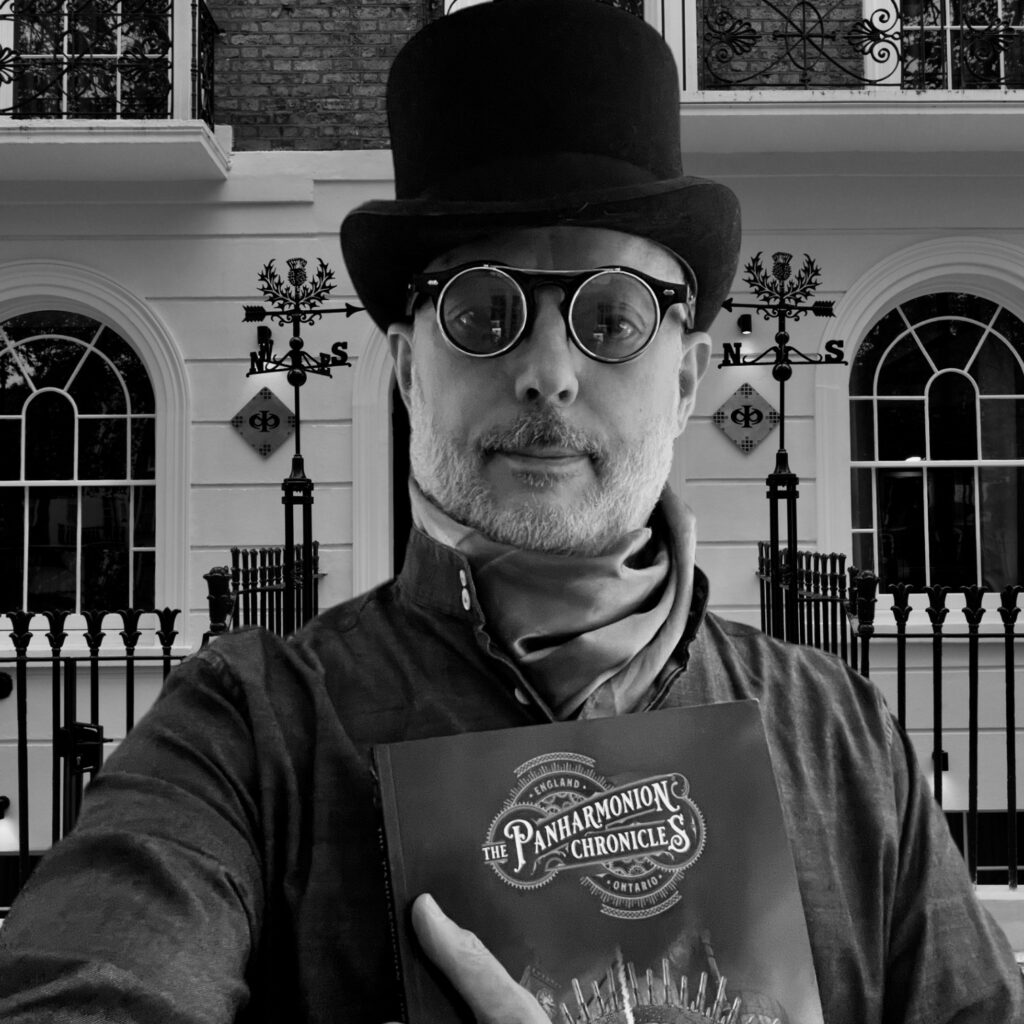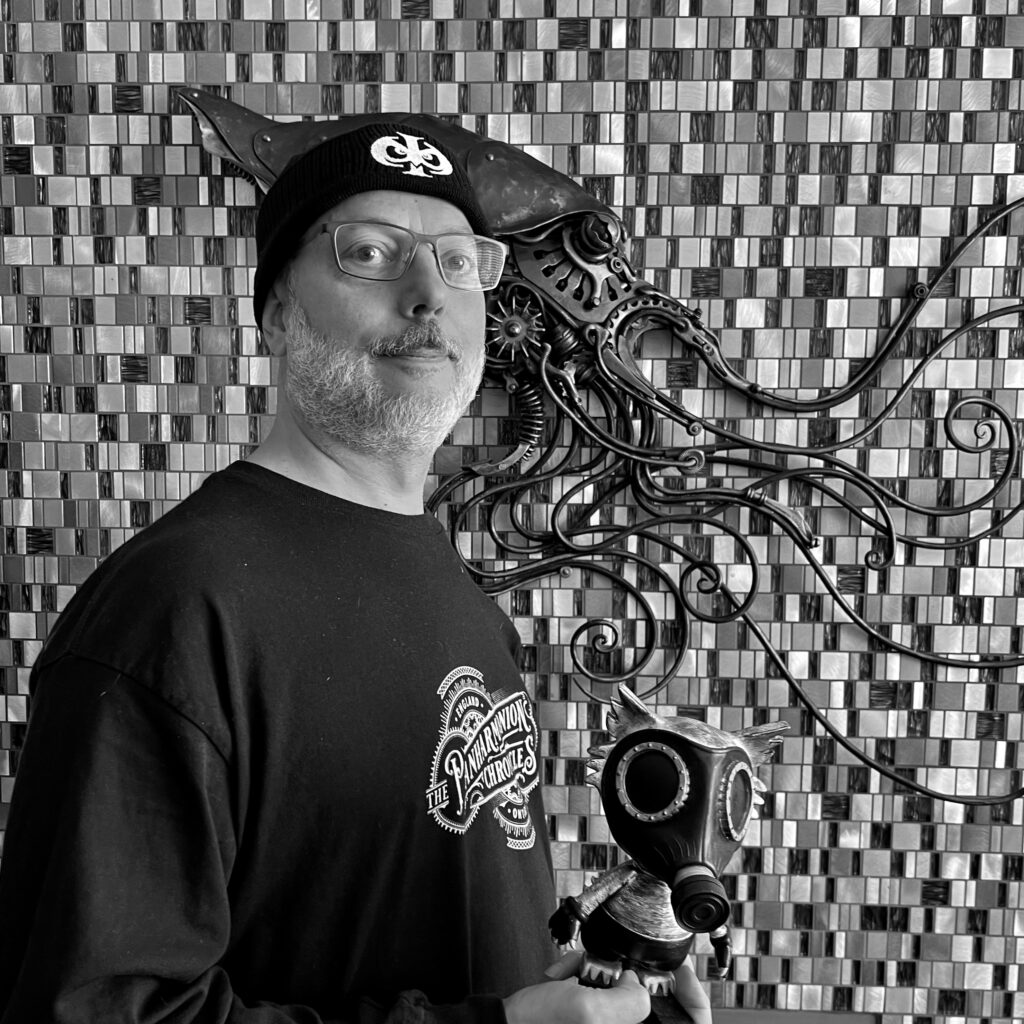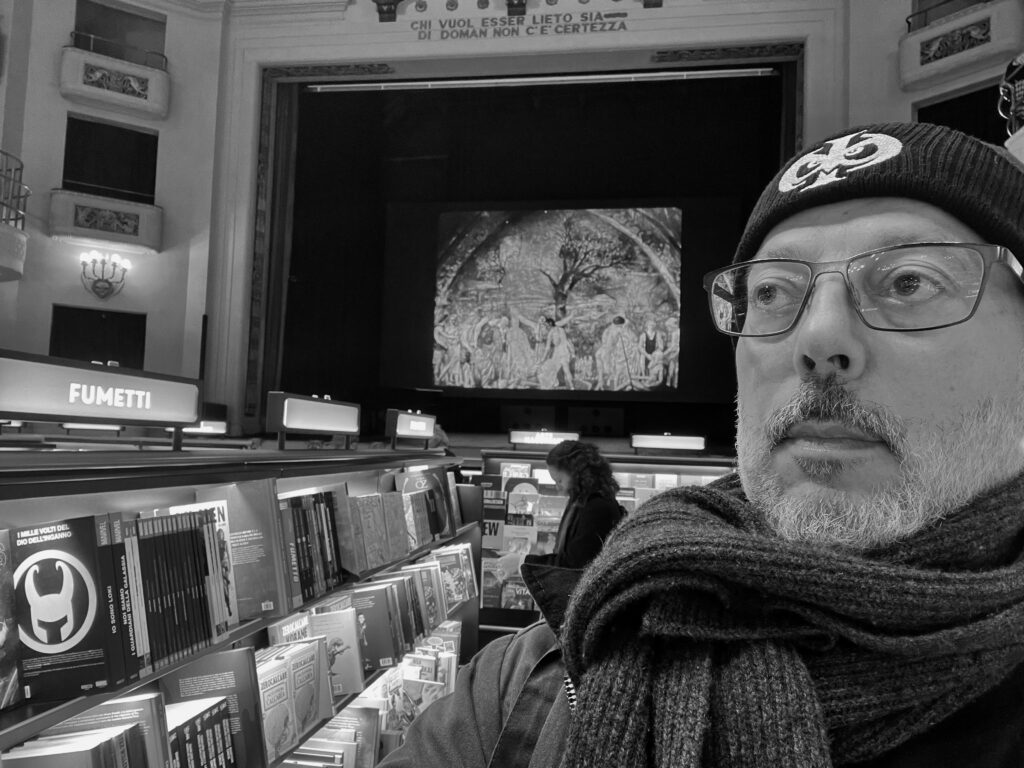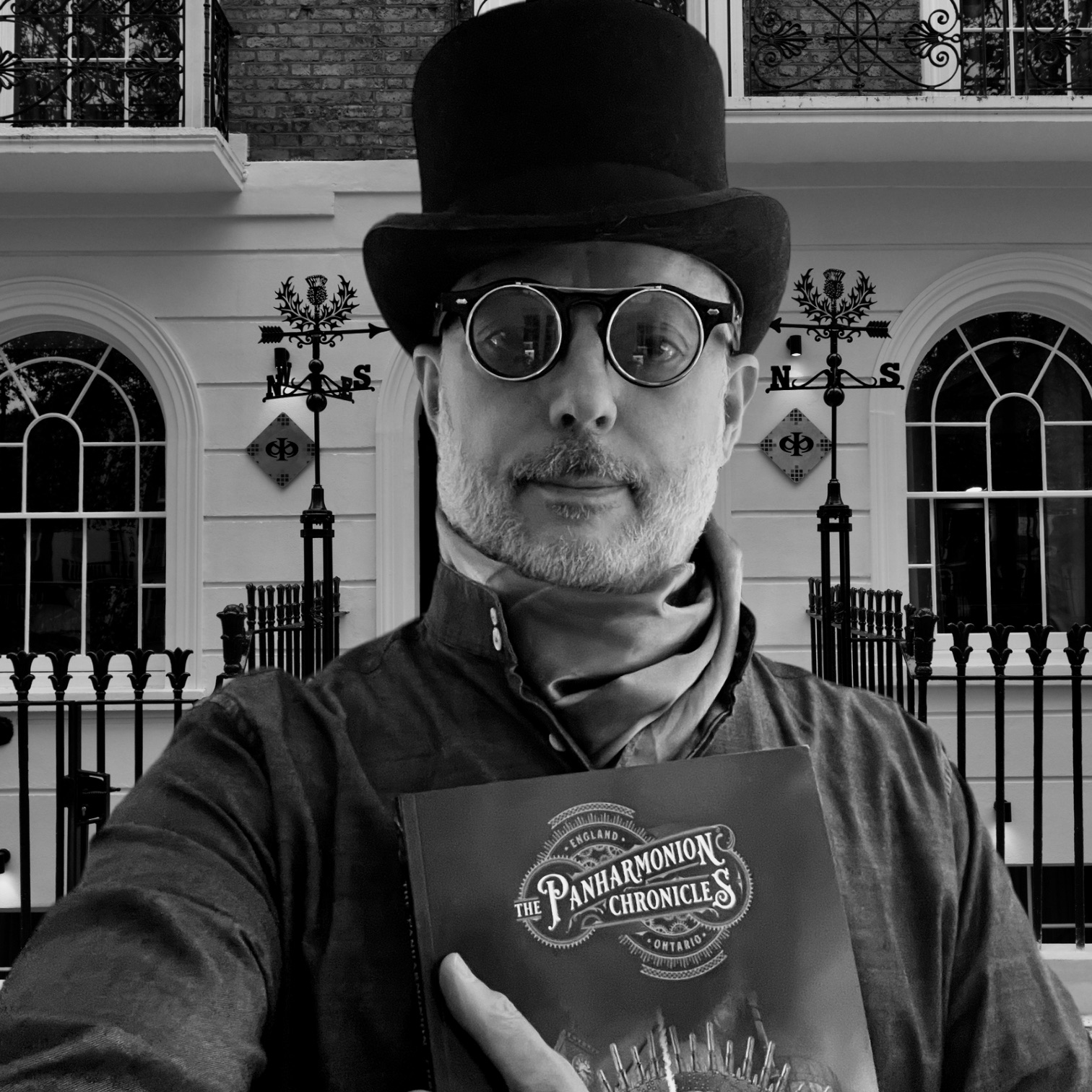
-Who is Henry Chebaane?
I’m a curious ape on a spinning rock, orbiting the sun at a speed of 30 kms per second, while travelling back and forth in time. This dizzying trip makes me anxious to use each day creatively to optimise every precious second. So, I try to transcend normative boundaries and explore ideas through a variety of artistic media. I’m a fiction author with a first graphic novel published and two more on the way through my production studio Supanova Media, with which I also write songs and produce electronic music under the alias LX8. Beside this, I’m also a lighting, product, graphic and interior designer with over 20 years of experience through my experiential branding agency Blue Sky Hospitality. I’ve worked on numerous projects worldwide from Alaska to Korea, Iceland to India, Tuscany to Kazakhstan. That being said, I’m just a humble philosophy student, privileged to be able to observe, think, feel, manifest, and share ideas and emotions with the public by using a large variety of creative media. I take constant inspiration from the diversity of people on our amazing planet and the wondrous energy that forms the substrate of our reality.

-What inspired you to become a Filmmaker?
It’s been a gradual process. I was born and grew up in Paris, where I watched a myriad of arthouse movies and ‘films d’auteur’. Many were French but also Italian, Spanish, and German. This diet combined with reading a stream of relevant books piqued my interest in intimate drama and characterisation, not just of people but also of places and buildings. When I moved to London almost 40 years ago, I was fortunate to learn more, by being exposed to a completely different type of storytelling. The Anglo-American approach tends to favour a more formalised structure, driven by the writing of luminaries like Aristotle, Robert Mc Kee, and Joseph Campbell. I’m self-taught in architecture and set design so was able to apply immediately my own theatrical vision to each commercial project. For example, in 2002, my first restaurant design in Warsaw was inspired by the work of playwright Witold Gombrowicz. More recently, my design for the Parisi Udvar restaurant Budapest was used as set in the American horror thriller ‘The Invitation’ (2022); and my designs for the Hyatt Centric Gran Via Madrid were used throughout the eight episodes of the Netflix Sci-Fi spy thriller ‘In from the cold’ (2022).
But the tipping point into filmmaking might have been the recent creation of a London boutique hotel called The Gyle. It is a conversion of 19th century heritage-listed townhouses in King’s Cross, Camden. During my research into the history of the area, a story formed in my mind. I took screenwriting classes and wrote a TV pilot. During the same period, I started reading more graphic novels as research into storyboarding. And then, one night, inspiration struck me in a way I didn’t expect. An entire, epic novel came fully formed in dream, with plot, casting, dialogues, wardrobe, locations, props, even the soundtrack! This story wanted to come out. So, I commissioned a very experienced comic artist called Stephen Baskerville and produced the first volume. It’s now published as The Panharmonion Chronicles: Times of London. The story is about a multi-cultural female music composer who struggles with a conflicted identity, a traumatic past and repressed supernatural abilities while fighting a violent supremacist cult through Time. Because the hero is a music composer, I wanted to try another creative experiment by learning music production and making several tracks under the same artist alias as the story protagonist: LX8. Then, I wrote the script for a music video, directed, and acted in it. I play the role of the author wandering in his own imagination, inside the world of the novel. By shooting the music video in The Gyle, which is the main plot location for my novel, I close a narrative loop and open another one into an infinitively recursive universe. Although it is an experimental short film, The Panharmonion Chronicles: Times of London has already received several awards, for which I’m grateful.

-Do you think the cinema can bring a change in the society?
Yes, it does and has done so many times already. Like literature, cinema is a powerful medium. It enables the audience to test and experience facets of reality that might not always be familiar, possible, or comfortable. Cinema allows society to explore and interrogate its own consciousness, ethics, and behaviours by placing the viewer in a hypothetical situation: what if…? This is the reason why cinema (and books) are often the targets for censorship from special-interest groups and state-control.
-What would you change in the world?
Well, this is a vast subject perhaps beyond the scope of this interview, but I will try to give a short answer. If I could change one thing, I would make access to universal knowledge free and unlimited to all humans. Knowledge brings insights, context, awareness and therefore empathy. It puzzles me that 5,000 years since the ability to share complex thoughts in writing, humanity has not developed a common understanding of the world. Reality is causality. This is why stories are so essential to being human. We live in a complex, entangled web of reciprocity with other beings. We must cooperate to live a peaceful existence, by listening, watching, and respecting other people. Everyone, not just humans. Maybe filmmaking is the ideal tool for this as it is a medium that transcends linguistic barriers.
-Where do you see the film industry going in the next 100 years?
Naturally, there are many possible branches in the road ahead. We can all speculate wildly but I personally think that, like books, cinema is an irreplaceable art form and storytelling instrument. I feel very grateful that streamers like Netflix have opened channels for us to access filmmaking from an increasingly large proportion of the world. If no catastrophic event put a stop to it, the spread of global filmmaking can only make humanity more enlightened and benevolent as it progresses into the future.

